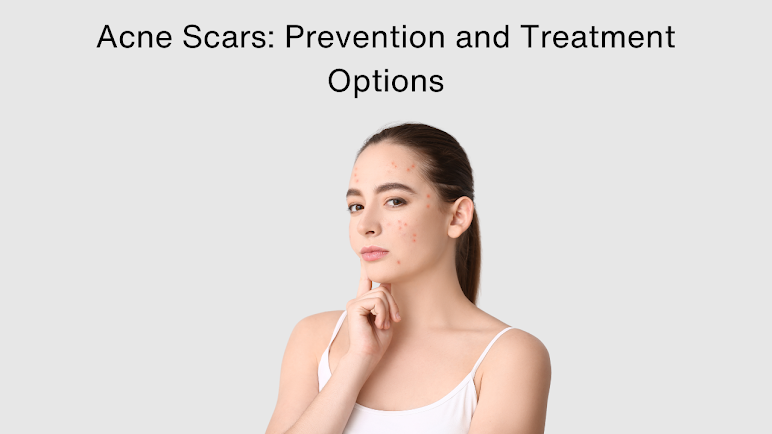Acne Scars: Prevention and Treatment Options

Welcome to the Gleuhr skin and dental clinic in Chandigarh and we provide best skin, hair and dental treatment in tricity and we also sell natural skin and hair products in all over world. We have best skin specialist in Chandigarh who are highly educated and dedicated to their work. https://clinic.gleuhr.com/

In the pursuit of radiant and healthy skin, individuals often turn to facials as a key component of their skincare regimen. While traditional facials have long been a popular choice, a growing trend in the beauty industry is the emergence of medicated facials. These specialized treatments offer a host of benefits that go beyond what traditional facials can provide. In this blog post, we will delve into the transformative advantages of opting for a medicated facial over traditional alternatives.
Medicated facials involve the use of specialized products containing active ingredients like acids, enzymes, and other therapeutic compounds designed to address specific skin concerns. Unlike traditional facials that primarily focus on cleansing, exfoliating, and moisturizing, medicated facials target issues such as acne, hyperpigmentation, and aging with a more targeted and potent approach.
One of the standout benefits of opting for a medicated facial is the ability to address specific skin concerns effectively. Whether you're dealing with persistent acne, uneven skin tone, or fine lines, medicated facials can be customized to target these issues with precision. The active ingredients in these specialized treatments work at a deeper level, promoting cellular turnover and rejuvenation.
For instance, a medicated facial containing salicylic acid can be highly effective in combating acne by exfoliating the skin and unclogging pores. On the other hand, treatments with ingredients like glycolic acid or retinol are known for their anti-aging properties, promoting collagen production and reducing the appearance of fine lines and wrinkles.
While traditional facials typically incorporate manual exfoliation methods, such as scrubs and brushes, medicated facials often utilize chemical exfoliants that penetrate deeper into the skin. Alpha hydroxy acids (AHAs) like glycolic acid and beta hydroxy acids (BHAs) like salicylic acid are common components of medicated facials, providing a more effective and controlled exfoliation process.
Chemical exfoliation removes dead skin cells, unclogs pores, and promotes cell turnover, resulting in a brighter and more radiant complexion. The controlled nature of chemical exfoliation minimizes the risk of irritation and allows for a more even and consistent outcome compared to traditional exfoliation methods.
Acne is a common skin concern that can be challenging to manage. Medicated facials offer a targeted approach to treating acne by combining the benefits of exfoliation, deep pore cleansing, and the use of anti-inflammatory and antibacterial agents. Salicylic acid, a beta hydroxy acid, is particularly effective in treating acne as it penetrates deep into the pores, dissolving excess sebum and preventing future breakouts.
In addition to salicylic acid, medicated facials may incorporate other potent ingredients such as benzoyl peroxide or sulfur, known for their anti-acne properties. These ingredients work synergistically to reduce inflammation, kill acne-causing bacteria, and promote a clearer complexion.
Hyperpigmentation, characterized by dark spots or uneven skin tone, is a common concern for many individuals. Medicated facials offer a targeted solution to address hyperpigmentation by incorporating ingredients like vitamin C, kojic acid, and alpha arbutin. These components work to inhibit melanin production, lighten existing dark spots, and promote a more uniform skin tone.
Unlike traditional facials that may provide temporary brightening effects, medicated facials target the root causes of hyperpigmentation, ensuring a more lasting and noticeable improvement over time. The ability to customize these treatments based on the severity of hyperpigmentation allows for a personalized approach that traditional facials may not offer.
As individuals age, the production of collagen, a crucial protein for maintaining skin elasticity and firmness, decreases. Medicated facials, enriched with ingredients like retinol, peptides, and growth factors, stimulate collagen production and promote skin renewal. These treatments effectively target fine lines, wrinkles, and sagging skin, providing anti-aging benefits that go beyond what traditional facials can achieve.
Retinol, a derivative of vitamin A, is renowned for its ability to enhance cell turnover, boost collagen synthesis, and improve skin texture. When incorporated into medicated facials, it can contribute to a smoother and more youthful complexion. Peptides and growth factors work in tandem to support the skin's natural repair mechanisms, promoting long-term anti-aging effects.
Medicated facials are often administered by licensed skincare professionals who possess specialized knowledge of dermatology and cosmetology. This expertise allows them to assess individual skin needs and tailor treatments accordingly. Unlike traditional facials that may follow a more generalized approach, medicated facials benefit from the guidance of professionals who can recommend the most effective combination of ingredients for specific concerns.
These skincare professionals can also provide valuable advice on post-treatment care and recommend a personalized at-home skincare routine to enhance and maintain the results of the medicated facial. The combination of professional expertise and targeted treatments contributes to a more comprehensive and impactful skincare experience.
In the realm of skincare, the choice between traditional facials and medicated facials boils down to the desired outcomes and specific skin concerns. While traditional facials offer general maintenance and relaxation, medicated facials emerge as a powerful solution for those seeking targeted and transformative results.
The ability to address specific issues such as acne, hyperpigmentation, and aging with precision sets medicated facials apart. With their potent ingredients, enhanced exfoliation methods, and professional guidance, these specialized treatments unlock the potential for radiant, clear, and youthful skin. Whether you're battling persistent acne, seeking to reverse signs of aging, or aiming to achieve a more even skin tone, medicated facials stand as a beacon of innovation in the ever-evolving landscape of skincare.
Comments
Post a Comment